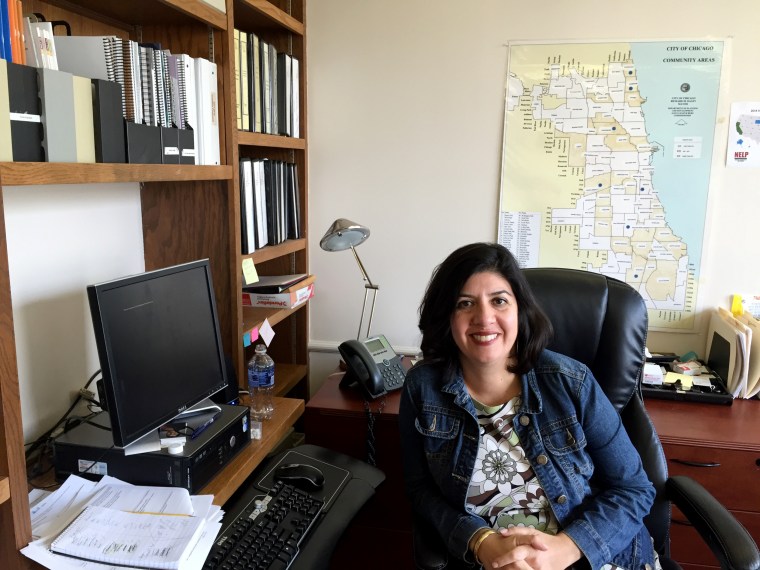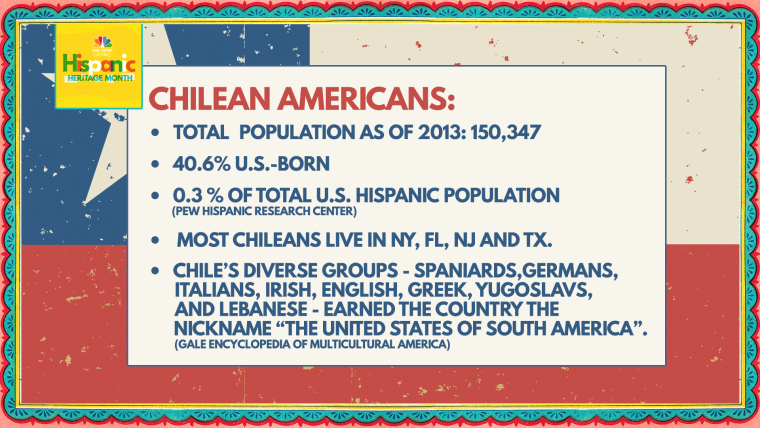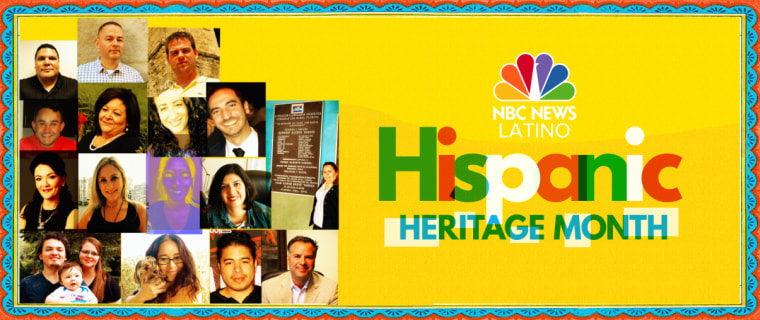This is part of our Hispanic Heritage Month series, "Our Latino Heritage," where we are profiling a U.S. Hispanic from each of our Spanish-speaking Latin American and Caribbean homelands.
As an elementary school student growing up in New Jersey, Alejandra L. Ibañez got teased a lot and never quite fit in.
“I grew up in a very small town. I lived in a predominantly working class Irish town were you could probably count the Latino families on one hand,” said Ibañez. “So I was that oddball-looking kid. I was different, I had a light complexion with dark hair, I was considered furry while my best friend Heather was blond and blue-eyed. I had a healthy childhood but no sense of identity.”

Ibañez says she lacked a context about why she was so different from the other kids at her school. While she knew that her family was from Chile, she didn’t know much more than that.
“My mom was busy working multiple jobs,” said Ibañez, “hustling to make sure we had a better life. We never had a sense that we were poor, I never knew we were undocumented, I didn’t find out about my birth story until about five years ago and even then I had to drag it out of her.”
It’s not hard to imagine why Ibañez’ mother decided to stay focused on looking forward – what she had left behind was painful. Ibañez eventually learned that she had been born six days after the coup in Chile, in 1973, and under quite a bit of duress.
“The doctor pulled me out with forceps at 5:30pm and he was in a hurry because at that time there was a 6pm curfew and he needed to get home before then,” Ibañez said. “Shortly after, my mom left my grandparents and her siblings, hoping there were more opportunities here for us.”

At about the time she was getting ready to complete high school, Ibañez’ mom remarried and the family moved to Evanston, Illinois, a suburb on the far north end of Chicago.
“It was the late 80’s and I was moving from a small town to a place with a huge high school with lots of diversity and sharp lines in race and class,” Ibañez recalled. “I had been put in honors History and English and I couldn’t understand why there were no black or brown kids in my classes, yet there were only black and brown kids on my bus home.”
That time of her life was one of both self-discovery and a new understanding about the world around her.
“My stepdad was Colombian and he came with the political consciousness of a teacher and a journalist,” said Ibañez. “He’d tell me, ‘You’re not American, Ale, don’t you know you are an immigrant?’ He had such high expectations of us and he really facilitated us building our own identity.”
"I'm now comfortable in my own skin - it's been a long journey."
“I really got a sense of my identity in college, I got to unpack it and was able to meet others like me,” said Ibañez, whose immigration status was regularized in the late 80’s under the Simpson-Mazzoli Act and is now a U.S. citizen. “For sure Latinos were a very small minority at DePaul but I co-started a Latino group to advocate for more Latinos to be hired and for more Latino professors to get their tenure.”
The rest came naturally. Not only did Ibañez get the opportunity to connect with other Chilenos in Chicago, but she took her background, her language and her education to where it was most needed – Chicago’s Hispanic community.
“I was engaged in social justice work using community organizing, helping low-income mostly-Mexican immigrants find power through their voice,” said Ibañez, who has ascended through several community development posts and has since transitioned into similar philanthropic roles with large foundations.
Today she and her husband, a Chicago-born Mexican-American, live in an affluent west-side suburb with their three boys who are steeped in their parent’s cultures, customs and language.
RELATED: Our Latino Heritage: Life As 'One of The Few' Costa Ricans
“We joke that when it’s Copa Mundial time, you get to win if the U.S. wins, if Mexico wins or if Chile wins,” said Ibañez. “We help them build on the fact that’s its an incredible asset they are American but also Mexican and Chileno. We are very intentional about not letting them become spoiled suburban American kids, we do a lot of typical Mexican and Chilean things like Independence Days, the food and celebrating Día de los Muertos. They are in dual language programs so they’re not super fluent in Spanish, but they can read and write.”
Today, Ibañez relishes the differences that frustrated her as a young girl.
“I really embrace my duality and I realize it’s an asset,” Ibañez said. “I’m able to navigate through the different worlds of mainstream society as well as the immigrant community and people embrace me and welcome me. I love that duality. I’m now comfortable in my own skin – it’s been a long journey.”
Esther J. Cepeda is a Chicago-based nationally syndicated columnist and an NBC News Latino contributor. Follow her on Twitter, @estherjcepeda.
